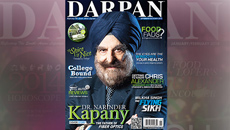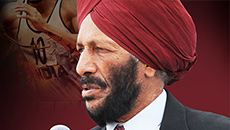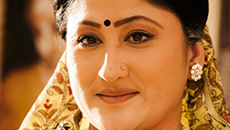Can you tell us about your role as Minister of State for Multiculturalism?
In this role, I have an opportunity to travel across Canada and meet with and have discussions with so many different cultural communities that make up what we know as Canada. I want to make sure that these communities have a voice in our government, so if they have concerns about what’s happening in Canada, our laws or ideas that we should be looking at or things that are happening abroad, I want to make sure their voice is heard within cabinet and caucus. We want to make sure the government reflects the Canadian population.
You will be working with Minister Kenney, can you tell us about some of the initiatives and policies you will be working on together?
Multiculturalism has a couple of different sides to it, including funding for projects and programs. One program that is important is Interaction, which is funding programs that encourages interaction between communities in Canada.
Under previous governments, multiculturalism was about giving communities money for cultural activities. These different communities have been here for numerous years and have become pretty good at celebrating and teaching their youth about their own culture, so we have gotten to that point. I think the next step is to encourage integration and more interaction between various communities, so some of the funding is definitely focused on that.
How does the government plan to address Quebec’s Charter of Values?
When this bill comes forth, right now it’s a proposal from the separatist government in Quebec, we will instruct the Department of Justice to review the bill when it’s available and if there is anything in the bill that infringes on Canadians’ constitutional given rights to practice their religion freely, then we definitely will vigorously defend Canadian’s rights.
As Canadians, we cannot be living in a country where youth going to school, in this case Quebecers, have to choose their career based on their faith. You cannot tell someone who wears a kipa, hijab or
turban that because of your faith you cannot be a police officer, teacher or doctor, so we need to make sure that we protect the rights of Canadians.
How will you foster greater multicultural values and acceptance among the Quebec government?
What I really feel with this PQ government in Quebec is that they are trying to pick a fight with the federal government, and are trying to create a distraction from important issues, such as the economy. As a government, we have always made sure that anyone coming into this country feels welcomed and that they are able to practice religion and faith within Canadian laws, and we’ll ensure that Canadians rights to practice their faith is upheld.
In 2010, you introduced a private member’s bill, which received unanimous consent, to build a National Holocaust Monument – why was this an important initiative for you?
The bill passed through the House of Commons, one of only four bills passed that year as a private member’s bill with unanimous support from all parties. The National Holocaust Monument will be in place, within the next couple of years, right across from the Canadian War Museum. I think it’s important because we are one of the only allied countries that didn’t have a monument in a nation’s capital.
What are your thoughts on effective and efficient family reunification and Kenney’s comments about older immigrants being a burden on the healthcare system in Canada?
We need to look at our immigration system in a responsible manner and try to balance the desire for families to have their grandparents with them. My wife’s mother lives with us in Ottawa, so I understand the importance of having grandparents in the house. It’s culturally important, respectful and helps with childcare – I wouldn’t be able to do what I do without support from my mother-in-law.
On the other hand, we also have a responsibility to taxpayers to ensure any programs that we have are evaluated in order to be responsible to the Canadian taxpayers. One of the biggest complaints we were getting was the massive backlogs, which came from a previous government, was taking up to eight years and longer to get grandparents in. We stopped new applications to deal with and process the backlog, brought in Super Visa – it is an extremely successful program that many Canadians are taking up with over 1,000 applications per month being approved, over 80% approval rate.
We have committed to next year reopening the parent-grandparent program, there will be some new conditions which allow those that can have the ability to afford to have parents come to this country to be able to support them as well, it’s heartbreaking to talk to seniors, who say ‘Yes, I’m in this country, but my children can’t afford to have me here, so I’m a burden to my family.’
What would you say to those who believe the Tories are harsher on immigration than past governments?
We as government have made decisions that should have been made a long time ago. We have decisively made decisions that are difficult to make but should have been made a long time ago, so, we had to fix problems that were created by former governments. We have also said our immigration system…should reflect our economic needs. There is something wrong with the former system, where we have jobs in Canada going unfilled.
For over a decade, you have worked with youth-at-risk through coaching soccer, wrestling, kabbadi and teaching bhangra. Why did you want to be involved in this process?
Sports allows youth to get away from everything else and focus their energy on something that they can be excited about, whether it’s a team or individual sport. Moreover, sports keep youth away from drugs or negative elements, and if you can fill up a young person’s day with school, homework and sports, it will take time away from things that can lead to trouble. I’ve seen the benefit of youth, who had the potential to be at risk, now turn into great individuals and successful professionals.
Wrestling has been reinstated for the Tokyo Olympics in 2020, what are your thoughts on this?
Wrestling is a great one-on-one sport; it builds confidence, especially if you’re young, as it cultivates your mental and physical capacities. It’s also a great base for kabbadi, as some of best kabbadi players got their base from wrestling itself.
In 2011, you became the first turbaned Sikh to become a federal minister in a country other than India – what did this historical appointment mean to you?
I was absolutely honoured to be a cabinet minister, and to serve my country in this way. It was an additional honour to be the first turbaned Sikh outside of India and by God’s grace, I have this opportunity to serve. It also says a lot about PM Harper giving this appointment, I think it recognizes the accomplishments and contributions of South Asians to this country.






